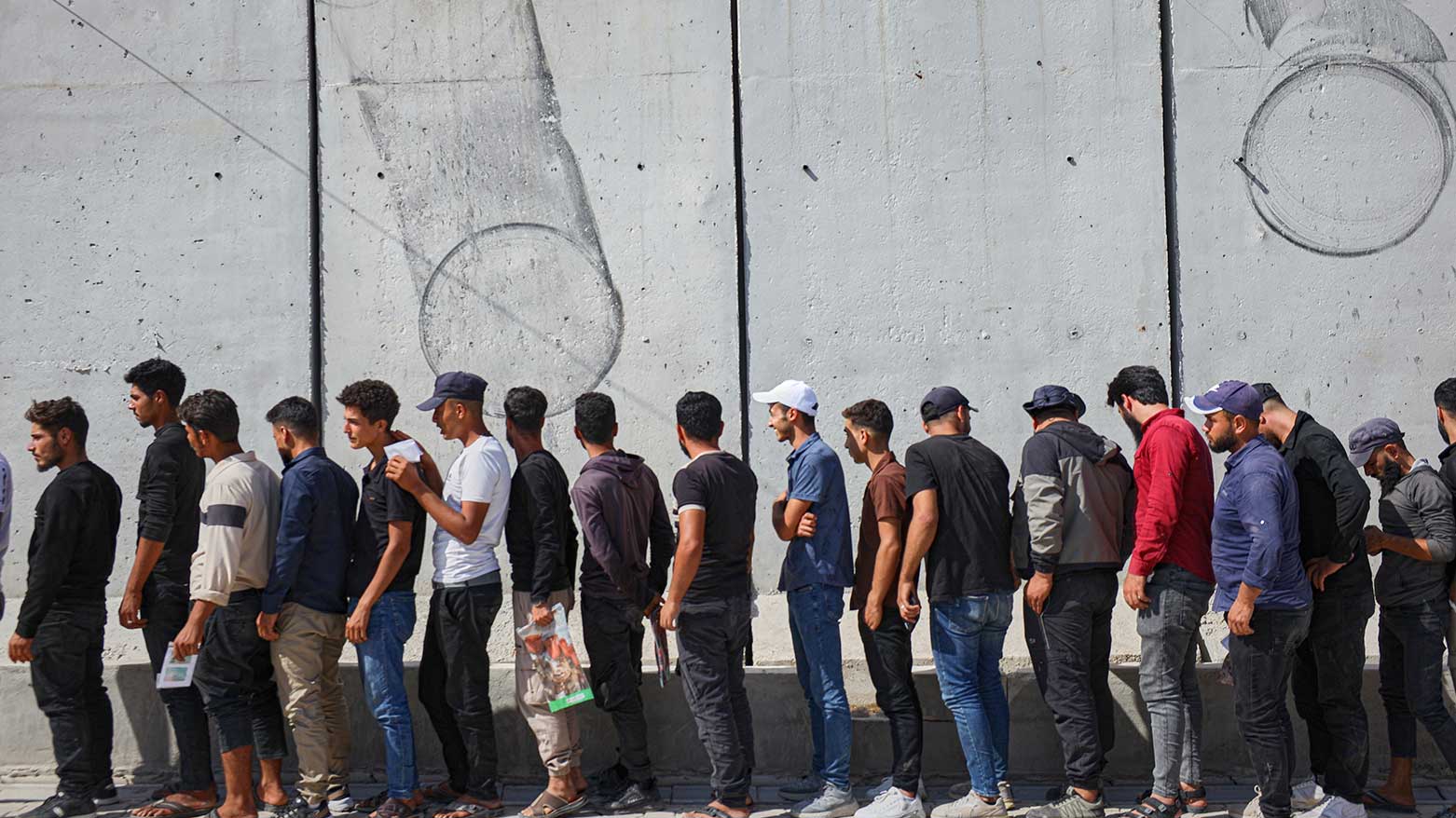Syrian Government Launches Minority Recruitment Drive in Afrin, Raising Hopes and Doubts
The push to enlist members of minority groups comes as Damascus faces mounting scrutiny after recent sectarian violence, in which government-affiliated fighters were accused of killing and humiliating civilians from the Alawite and Druze sects.

ERBIL (Kurdistan24) — Young Kurdish men, including members of religious minorities, recently signed up to join the Syrian government’s General Security forces in Afrin, an area in northern Syria from which Kurds were forcibly displaced years ago, according to the Associated Press (AP).
The push to enlist members of minority groups comes as Damascus faces mounting scrutiny after recent sectarian violence, in which government-affiliated fighters were accused of killing and humiliating civilians from the Alawite and Druze sects. A U.N.-backed investigative commission earlier this month recommended that Syria’s new authorities recruit from minority communities to ensure a more “diverse security force composition” and restore community trust.
The new government in Damascus, led by Sunni Islamist former insurgents who toppled President Bashar al-Assad in December after a nearly 14-year civil war, has struggled to gain the confidence of minorities, many of whom remain deeply wary of its intentions.
Seeking Inclusion in Afrin
On Wednesday, dozens of young men lined up at a recruitment center in Afrin. Among them was Abbas Mohammad Hamouda, a Kurdish Alawite.
“I came with young men from my district to join the new state,” he told AP. “We will stand together, united, and avoid problems and wars from now on.”
Afrin, once a predominantly Kurdish area, was captured in 2018 by Turkish forces and their allied Syrian opposition fighters, who expelled Kurdish-led Syrian Democratic Forces (SDF) fighters and displaced tens of thousands of civilians. Since then, Arabs from other parts of Syria have resettled in Afrin, while the remaining Kurds have reported widespread discrimination.
Some see the new recruitment drive as a possible step toward inclusion. Malik Moussa, a Yazidi Kurd who registered, said he hoped to be “part of the Syrian army and for there to be no discrimination.”
Ferhad Khurto, a government official in Afrin, said around 1,000 men from different religious and ethnic backgrounds have signed up in recent days. He described the drive as part of a broader national strategy to integrate Afrin residents into both security and civilian institutions.
Noureddine al-Baba, spokesperson for the Interior Ministry, told AP that “competence and patriotism are the criteria used, not sectarian quotas.”
Skepticism About Damascus’ Motives
Despite official assurances, skepticism runs deep. The Afrin Social Association, which represents displaced residents now in Kurdish-controlled areas, condemned the recruitment, warning that without guarantees for the voluntary and dignified return of displaced Kurds, the move is “irresponsible” and risks undermining the fragile March agreement between Damascus and Kurdish-led forces.
A Kurdish resident of Afrin, speaking anonymously due to security concerns, said many locals remain cautious. While some view the initiative as a chance to restore Kurdish presence in Afrin, others fear recruits could be manipulated in future clashes between government troops and the SDF.
Afrin’s Strategic and Symbolic Weight
Afrin’s fate has long been central to Syria’s conflict. Before 2018, the enclave was one of the few relatively stable Kurdish-majority areas, governed by the Kurdish-led Autonomous Administration. Its fall to Turkish-backed forces was widely criticized by rights groups, which documented cases of looting, forced displacement, and demographic changes, as Arabs and Turkmen resettled in Kurdish homes.
The March 2025 deal between Damascus and the SDF — which included provisions for displaced Kurds to return and for a merger of military forces — raised hopes of reconciliation. Yet, implementation has stalled amid mistrust, Turkish objections, and competing regional agendas.
For Damascus, recruiting minorities in Afrin carries both symbolic and strategic importance: it projects inclusivity to international observers while attempting to reassert control over a fractured and ethnically diverse region. For many Kurds, however, the ultimate test will be whether recruitment is matched with genuine power-sharing, protection of rights, and a reversal of years of displacement and marginalization.
